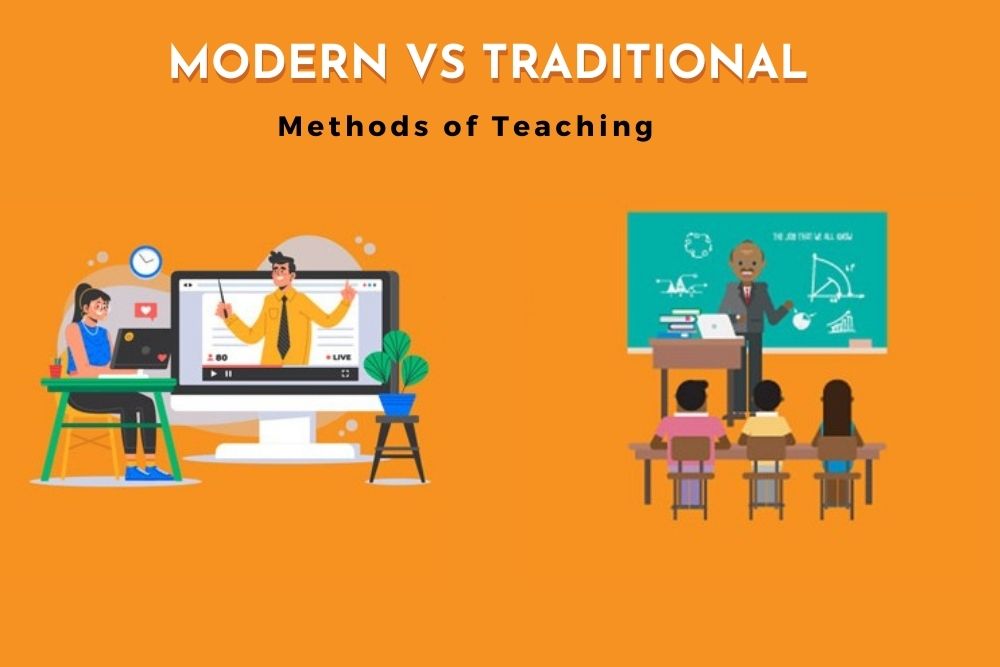


The traditional educational model, which calls for students to physically attend classrooms, has long been the predominant way to study. Alternatives to the conventional classroom environment have, however, evolved in recent years in the form of non-traditional modes of education. These unconventional educational methods include, among others, online learning, blended learning, and experiential learning. We shall investigate if non-traditional educational methods can take the place of conventional education in this blog article.
Benefits of non-traditional educational methods
Due to their many benefits, non-traditional types of education like online learning, blended learning, and experiential learning have been gaining favor recently. Flexibility is one of the key benefits of non-traditional educational methods. Non-traditional modes of education give students the freedom to learn at their own pace and on their own schedule, in contrast to traditional learning methods that impose strict attendance requirements at certain times and locations. This entails that students can complete their coursework whenever it is most convenient for them, which is especially useful for non-traditional students who might have obligations to their families or the workforce that make it challenging for them to attend class during the day or on a regular basis.
Another benefit of non-traditional types of education is that they are frequently more affordable than conventional ones. For instance, online education does away with the need for pricey textbooks and lowers the overhead expenses related to running a physical classroom. No matter their financial situation, more students may now access education because to its cost-effectiveness. Students who choose for non-traditional educational options can also save money on transportation charges and other expenses related to attending a physical institution.
In addition, compared to conventional modes of education, non-traditional ones offer access to a greater variety of courses and programs. Students can select from a wide range of online courses and programs that are provided by organizations throughout the world. Students who have specialized interests or professional aspirations that might not be catered to at their local institutions can benefit especially from this access to a wide variety of educational resources. Additionally, students have access to these materials from anywhere in the world, which is helpful for those who reside in isolated or underserved locations.
The ability to customize non-traditional educational methods to fit unique learning preferences and styles is another benefit. For instance, while some students might prefer to learn at their own pace, others might profit from engaging in interactive activities. Online lectures, interactive assignments, and opportunities for experiential learning are just a few of the alternatives non-traditional modes of education can provide to meet various learning preferences and styles.
Non-traditional educational approaches can also provide a more inclusive learning environment. For instance, online and blended learning can lower barriers to education for students with impairments or for individuals who find it challenging to attend physical classes due to travel distance or other issues. Unleashing boundless educational horizons, this paves pathways for diverse learners, bridging chasms that separate communities, and lighting the way to a more inclusive world.

The limitations of non-traditional forms of education
While non-traditional forms of education offer several advantages, they also have some limitations. These includes lack of social interaction, limited direct experience, greater requirement for self-motivation and self-control, not suitable for all types of learners and not appropriate for all learners
Lack of social interaction
Non-traditional forms of education, such as online learning, lack the face-to-face interactions and personal connections that are often found in traditional forms of learning. This can be a disadvantage for students who thrive in a collaborative and social learning environment. Classroom discussions, group projects, and networking opportunities are all valuable components of traditional education that may be missed in non-traditional settings.
Little direct experience
Some academic specialties necessitate practical experience, which non-traditional educational methods may find difficult to reproduce. For instance, in order to become qualified physicians, medical students need clinical experience, whereas engineering students need hands-on laboratory experience to advance their skills. The advantages of in-person, hands-on learning may not entirely be replaced by some non-traditional means of learning, despite their attempts to imitate these experiences.
Greater requirement for self-motivation and self-control
More self-discipline and self-direction are required of pupils in non-traditional educational settings than in conventional ones. Without the structure and direction offered by conventional classroom settings, students must be able to manage their own time, make priorities, and work independently. This can be challenging for some students, especially those who require external motivation or have difficulty with self-discipline.
Not suitable for all types of learners
Non-traditional forms of education may not be suitable for all learners. Some students require the structure and routine of traditional classroom settings to remain focused and engaged. Others may struggle with the technical requirements of online learning or have difficulty learning without the guidance of an instructor. Some students may find this difficult, especially those who need outside incentive or struggle with self-discipline.
Not appropriate for all learners
Some students might not be good candidates for non-traditional educational methods. To stay focused and involved, some students need the routine and discipline of traditional classroom environments. Others might find it difficult to study without an instructor’s direction or to meet the technological requirements of online instruction.
Can alternative educational methods replace conventional methods of study?
Even though non-traditional modes of education have a number of benefits, it is unlikely that they will ever totally replace conventional ones. Traditional educational methods offer beneficial interpersonal interaction and practical experience that are challenging to recreate in an online or hybrid learning setting.
Non-traditional educational approaches, on the other hand, can support conventional educational approaches and offer substitutes for students who might not have access to conventional educational approaches. For instance, blended learning, which combines the advantages of online learning with the social connection and practical experience of traditional forms of learning, can offer the best of both worlds and be a great alternative for students who reside in rural or underserved locations.

The COVID-19 pandemic has compelled many universities to relocate their courses online; therefore, non-traditional modes of education can be especially helpful in the current environment. Students have a method to continue their education despite the difficulties the pandemic has brought about, thanks to non-traditional sources of instruction.
Conclusion
In conclusion, non-traditional modes of education are superior to traditional forms of learning in a number of ways, including flexibility, cost-effectiveness, and access to a greater variety of courses and programs. They may not be appropriate for all types of learners due to their drawbacks, which include a lack of social connection and hands-on experience. Although non-traditional educational approaches are unlikely to totally displace traditional educational approaches, they do provide worthwhile options and can even support traditional educational approaches.
It is crucial for institutions to understand the benefits and drawbacks of non-traditional modes of education and to offer students a variety of options that best meet their requirements and learning preferences. Institutions must keep funding online learning platforms and encourage students who choose non-traditional educational options by giving them resources and assistance.
Article by Simeon Olong
Head of Elementary,

We are the only international school in Nigeria that offers 100% Ontario Ministry of Education approved Canadian (Ontario) curriculum from Grade 1 through 12.
